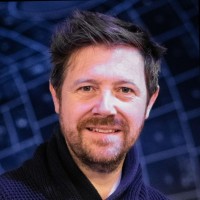 \
&
Contact us
\
&
Contact us
 \
&
Contact us
\
&
Contact us
Published on | 2 years ago
Last updated on | 1 year ago

nico.deblauwe@vlaio.be
Data is available from 2007 onwards, and comes from 3 framework programmes: Horizon Europe (ongoing) and Horizon 2020 and FP7 (past). In total, info on almost 500k proposals (1.8 million applications), 125k projects and 250k organisations is available.
There are many different dashboards, but the most interesting ones are the R&I organisation profiles, proposals and projects.
The main constraint of the provided information is that you mostly have access to aggregated information only and cannot drill down nor click through to related information. But a bit of searching will help you quite quickly to uncover the needed information.
Every dashboard starts with the full information of all framework programmes. In order to get something usefull out of it, you'll need to select (filter) a specific project, proposal or organisation.
R&I organisation profiles: select an organisation (by its legal name or by its pic code) and get a good overview of the amount funding received, the number of projects participated in (including the role) and a breakdown of the (sub)programmes in the key figures tab.
You can use this information to verifty the credibility of a (potential) partner for a new proposal. Or to find the PIC number (and organisation type) of an organisation that you only know by name. Or vice versa, to find the organisation that is behind a PIC number.
Additionally, the detailed profile also provides information on the collaborations and involved organisation departments (which could be an interesting help for fingpointing the people you want to be in contact with).
The project list displays info about the funded projects the organisation was involved in, with links to CORDIS for more information.
The proposals section contains aggregated information on the (number of) proposals submitted. You can filter by country and even region (nuts) or by framework programme or programme. And even see detailed statistics for a specific call topic.
It's important to keep in mind that the submitted proposals (nor their metadata) are publicly available. So you will never be able to find links towards a specific submitted proposal (and/or its consortium) if it has not been funded.
The projects section contains two different view: key figures and project details. Where the first contains similar aggregated information to the proposals, the latter is more interesting if you are looking for a starting point info finding the eco system.
The project details section allows you to drill down to a specif thematic domain or even a call topic, or a geographical region. The result is a list of projects that satisfy your filter settings (e.g. all projects about topic xxx, or all projects with partners from region yyy).
You found some projects of interest and want to take a deeper dive? Don't forget to check CORDIS, where you'll find information on all EU-supported R&D activities. Use one of the following links to get quickly results for Horizon Europe Horizon 2020 or FP7 projects. Make sure to use the 'Domain of Application' filter to narrow down the results.
We offer news and event updates, covering all domains and topics of Horizon Europe, Digital Europe & EDF (and occasionally, for ongoing projects, Horizon 2020).
Stay informed about what matters to you.
By signing up, you can opt in for e-mail notifications and get access to
a personalised dashboard that groups all news updates and event announcements in your domain(s).
Only for stakeholders located in Flanders
The Miricle project, ‘Mine Risk Clearance for Europe’, obtained funding under the European Defence Industrial Development programme call ‘Underwater control contributing to resilience at sea’. The main objective of the project was to achieve a European and sovereign capacity in future mine warfare and create a path for the next generation ‘made in Europe’ countermeasure solutions. In order to realise this objective, Miricle addressed various stages: studies, design, prototyping and testing. These stages inter alia included the successful testing of an XL Unmanned Underwater Vehicle, a protototyped mine disposal system and multiple innovative systems to detect buried mines. Flanders Marine Institute (VLIZ), was one of the five Belgian partners in the consortium. Within the project, VLIZ was able to forward its research on the acoustic imaging of the seabed to spatially map and visualize buried structures and objects - in this case buried mines - in the highest possible detail. VLIZ also led the work on ‘Port and Offshore Testing’, building on the expertise of the institute in the field of marine operations and technology.